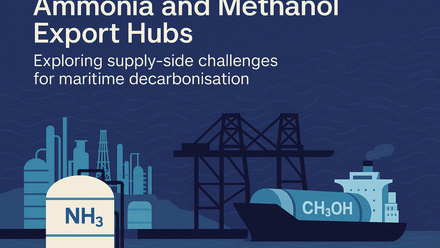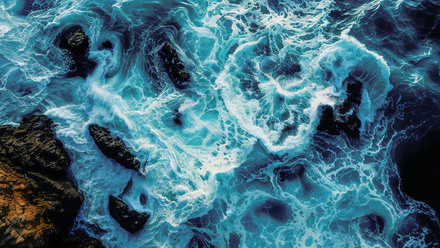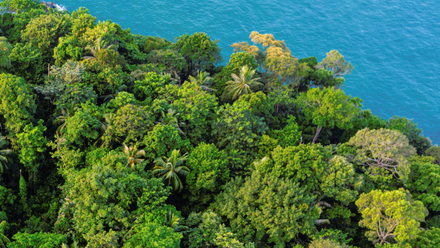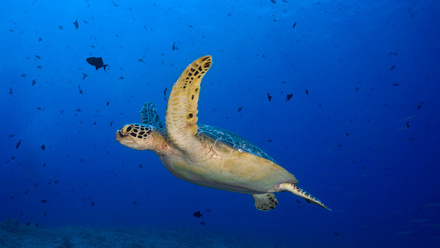Harnessing the ocean for natural climate repair
The ocean is home to natural systems that can support climate repair. Many challenges remain for regenerating a healthy ocean and cultivating carbon storage – but the upcoming Oceans of Knowledge conference will explore some solutions.
As the greatest carbon sink on the planet, the ocean is a buffer on the impacts of climate change. Holding 50-times more carbon than the atmosphere, it absorbs 25% of all carbon dioxide (CO2) emissions and creates half of the oxygen we breathe, mainly from phytoplankton.
Looking after the ocean, through processes such as habitat restoration, gives us an ally for climate change mitigation. Seagrasses and mangroves absorb four-times more CO2 than forests, for example. Designating more Marine Protected Areas will help conserve these fragile, vital ecosystems.
The ocean enables 80% of global trade, but shipping contributes almost 3% of global emissions. Interest in alternative fuels and green shipping corridors is growing en route to ‘net zero’ shipping targets in 2050, but the ocean’s natural environment must also be considered.
IMarEST’s upcoming Oceans of Knowledge conference, supported by the United Nations Decade of Ocean Science for Sustainable Development, will explore ways of both looking after and utilising the ocean. With the theme “Beyond Net Zero – The role of the ocean in climate repair”, it will be held at the Institute of Physics in London on 18 October 2023.
Problems and solutions
The in-person event will explore the ocean’s role in global climate repair and the conditions needed for its success, covering scientific, operational, educational, and regulatory challenges. Expert speakers will explore the associated problems and solutions across four main sessions. Dr Ralph Rayner, professorial research fellow, will introduce the event, which begins with a session focused on climate repair and the ocean.
This will lay the groundwork for the ocean’s importance for CO2 removal and storage, including talks from Dr Chris Jones of the UK Met Office, who will share the perspective of the Intergovernmental Panel on Climate Change (IPCC), and Professor Sir David King, the UK government’s chief scientific advisor between 2000 and 2007, with a keynote address on the climate crisis.
Working at the frontier
The second session, Marine Carbon Dioxide Removal and Sequestration, shares presentations from organisations involved in CO2 removal and sequestration, including the new start-up MacroCarbon.
Company founder Dr Mar Fernández-Méndez describes herself as a climate optimist, but urges the need to prioritise and accelerate ocean-based carbon removal research, to understand the best ways to mitigate climate change and protect the oceans.
The start-up was founded in Las Palmas on the Canary Islands, where sargassum seaweed will be cultivated for its CO2 sapping potential. The natural material will also be processed to create products such as plastics, potentially helping to ‘defossilise’ the chemical industry.
At Oceans of Knowledge, Dr Fernández-Méndez will talk about how “combining artificial upwelling with sargassum aquafarming in the open ocean can contribute both to avoiding and reducing CO2 emissions.”
Reporting and information sharing
Challenges for reporting, outreach, operations, and safety will all be covered in the final sessions, including a policy perspective from Dr Leo Mercer, who will look at a legal and regulatory framework with Navraj Singh Ghaleigh.
Brad Ack, CEO of Ocean Visions, will close the conference. The ocean and the climate crisis go hand-in-hand, he tells Marine Professional. “We are likely going to have to rely on the power of the ocean to help us clean up the legacy carbon pollution that is smothering the planet, and overheating and acidifying the ocean. In doing so, we can also restore the ocean.
“It is critical that we proceed with haste to determine what contribution the ocean can make to this massive global pollution clean up effort.”
Information sharing opportunities such as Oceans of Knowledge will be incredibly valuable as we seek to learn how to protect and harness this powerful natural resource in the fight against the climate crisis.






